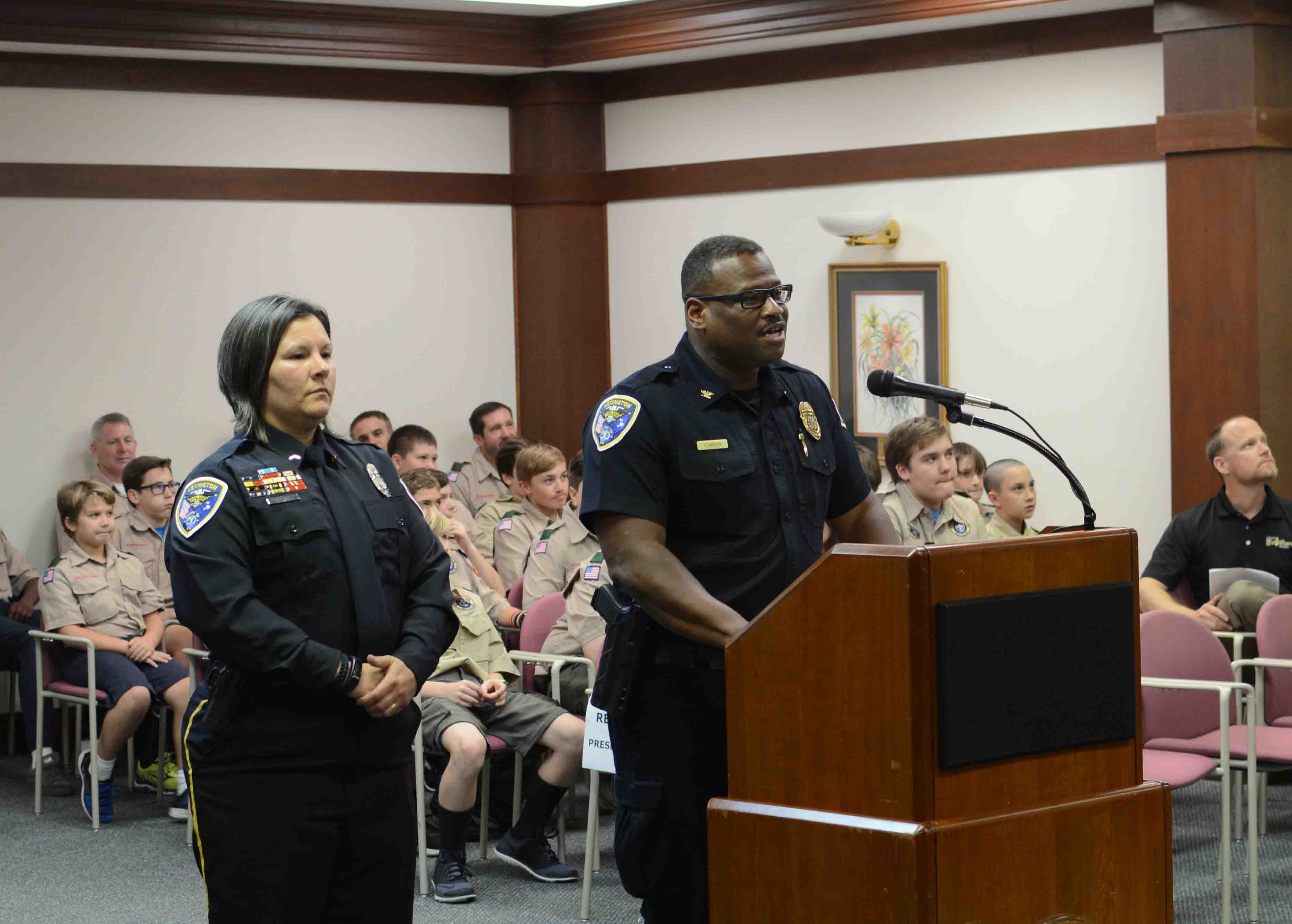The police chief of the Town of Moncks Corner challenged a roomful of municipal elected officials to show up to their police department's public outreach events.
"In the 80s, you'd have never convinced me that putting up a tent and cooking a hotdog and a hamburger would change the world, but it does — and it has to be done by your police officers," said Moncks Corner Police Chief Rick Ollic, one of three police chiefs who spoke to city council members and mayors during a training session of the Advanced Municipal Elected Officials Institute of Government.

Lexington Police Chief Terrence Green recognizes Pfc. Steffonie Cockerill before the Lexington Town Council for her work with the department's child passenger seat program. Photo: Lexington Police Department.
"I'll tell you something else — I'm going to challenge you. You need to be there, too," he told the elected officials. "They need to see their councilman. They need to see their mayor."
"Nothing is more important than seeing an agency doing outreach and seeing elected officials supporting that outreach. It matters."
Local government officials and police officers work hard to build positive relationships with their city or town's residents. But there's another piece to the social capital puzzle, one that is in-house — how to build relationships between a city's staff and its police department.
Ollic's advice was one point that arose from a panel that also included Lexington Police Chief Terrence Green and Florence Police Chief Allen Heidler. They also suggested mayors and city councilmembers consider going on a ride-along with a police officer from their city's department.
The ride-along can teach elected officials and law enforcement officers a lot about one another's duties and challenges. The experience may give elected officials a different, more close-up view of individual neighborhoods than they're used to. Plus, it also gives councilmembers and mayors a different view of their own city operations.
For instance, elected officials can learn up close what training and equipment their police department has and what it may still need. Green recalled how one drive with an elected official revealed to the councilman that police vehicles were too small to comfortably contain officers' police equipment.
The Lexington police chief pointed to another benefit.
"When you ride with that officer, you see what type of employee you have," said Green, adding that it can reveal an officer's approach to residents. "How is he treating that person?"
Allowing an elected official to accompany a police officer on roadway patrol is also a common approach in the City of Florence.
"We encourage everybody to ride, including council, and we have the citizens' police academy," Heidler said. "If you can get into a car with them (police officers), they're going to tell you their mind."
Ride-alongs by municipal elected officials are just one way to build a working relationship between a city's police department and its city hall, which sometimes operate in relative isolation from one another.
At the same time, Green says councilmembers and mayors should recognize that a municipal police chief has unique knowledge and skills as the city's top law enforcement official.
"The police chief is the expert. You hired him," said Green. "If he advises you on something, and you said, 'No,' and then it comes back in your face … don't go after the police chief or the police department. Just say, 'We made a mistake. We didn't trust you on your opinion on this.'"
As the Town of Moncks Corner has shown, encouraging department leaders to communicate can help knock down cross-departmental walls.
To that end, the town's department directors have regular luncheon meetings.
"We build relationships," Ollic said. "We go in there with our problems to solve them, not to go and cause trouble. The police chief's role has to be a leader in the town, but it's also to have a relationship with mayor and council, working together."
